Selective hearing has become a common phenomenon among men. A recent study has revealed that men only have a six-minute attention span when it comes to actively listening to their female partners.
Yes, you read that correctly – just six minutes of dedicated attention to their partner’s words.
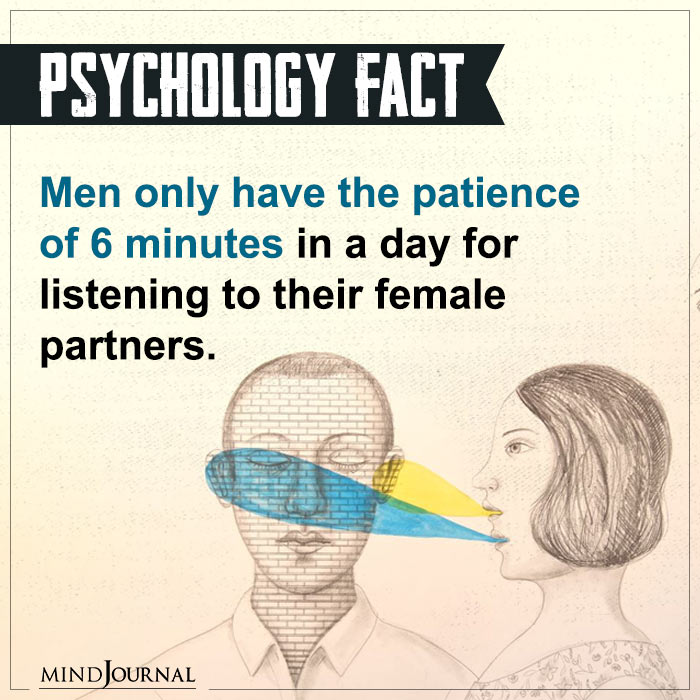
Men’s Short Attention Span When Listening to Women
Relationship experts conducted a study on this fascinating topic of “selective hearing” in relationships. You know the drill – when someone only tunes in to the parts of a conversation that they want to hear, leaving the rest.
We’ve all been there, right? Well, these experts decided to delve deeper to understand what was really going on.
They followed 456 couples over the course of several years, tracking their communication and relationship satisfaction levels.
What they found was eye-opening, to say the least. Men listen to women only for six minutes. That’s less time than it takes to make a cup of tea, let alone have a meaningful conversation!
When it came to men listening to their female partners, the data showed that men who are in a relationship with women typically start to lose focus and “tune out” from their partners after just six minutes of actively listening.
Yup! Only six minutes before they start blocking out!
To put this into perspective, let’s say you come home from work and want to share the details of your day with your partner. You start talking about your frustrating meeting with your boss, your stressful deadlines, and your coworker’s annoying habits.
After six short minutes, your partner starts to lose focus and drifts off into his own thoughts, and he’s not really listening to what you’re saying. You might just be talking to a brick wall!
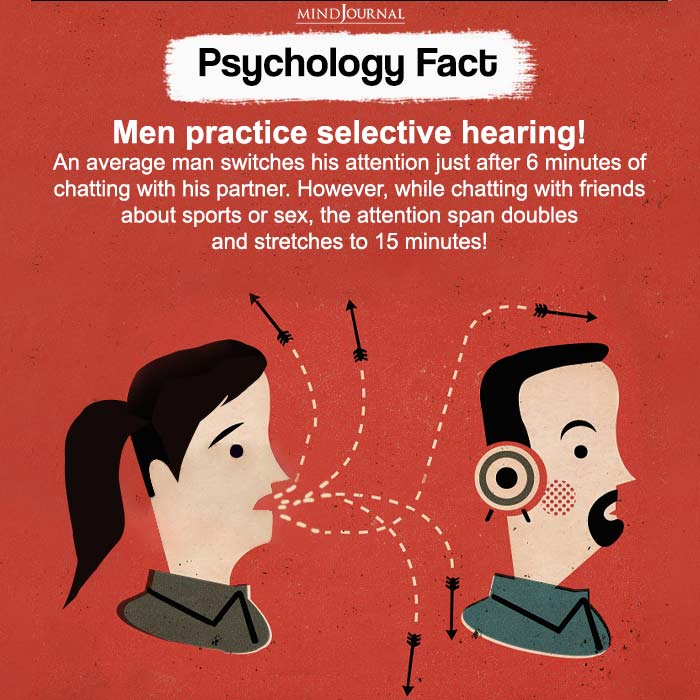
Related – 3 ‘Love Language’ Communication Skills That Will Make Your Relationship Last
Why do men actively listen only for 6 Minutes?
Well, the study found that men’s brains are wired differently from women’s. They tend to focus on problem-solving and finding solutions, rather than simply listening and empathizing.
This means that when their partner is talking, they’re more interested in coming up with a solution than actually hearing what she has to say.
But, before you start pulling your hair out in frustration. Ladies, don’t give up on your man just yet! The study may have shown that men only have an attention span of 6 minutes when it comes to listening to their female partners, but the good news is that they can improve.
Yes, you read that right – there is hope for the men in our lives!
The study also found that with a bit of effort and practice, men can learn to be better listeners which reported higher levels of relationship satisfaction over time.
This means making a conscious effort to really hear what your partner is saying, without interrupting or trying to solve the problem right away.
So, there you have it, ladies. While men might only have a six-minute attention span when it comes to listening to you, they can improve with practice.
If you’ve ever felt like your man is selectively hearing you, don’t despair. As it’s not about tuning out after six minutes but tuning in for the long haul.
Related – The 5 Levels Of Listening: How To Be A Better Listener
Source: Dailymail.co.uk

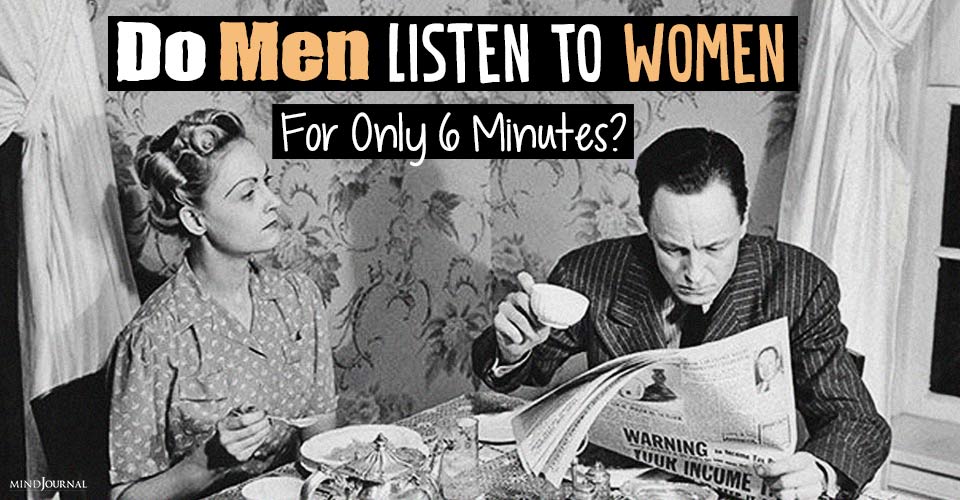
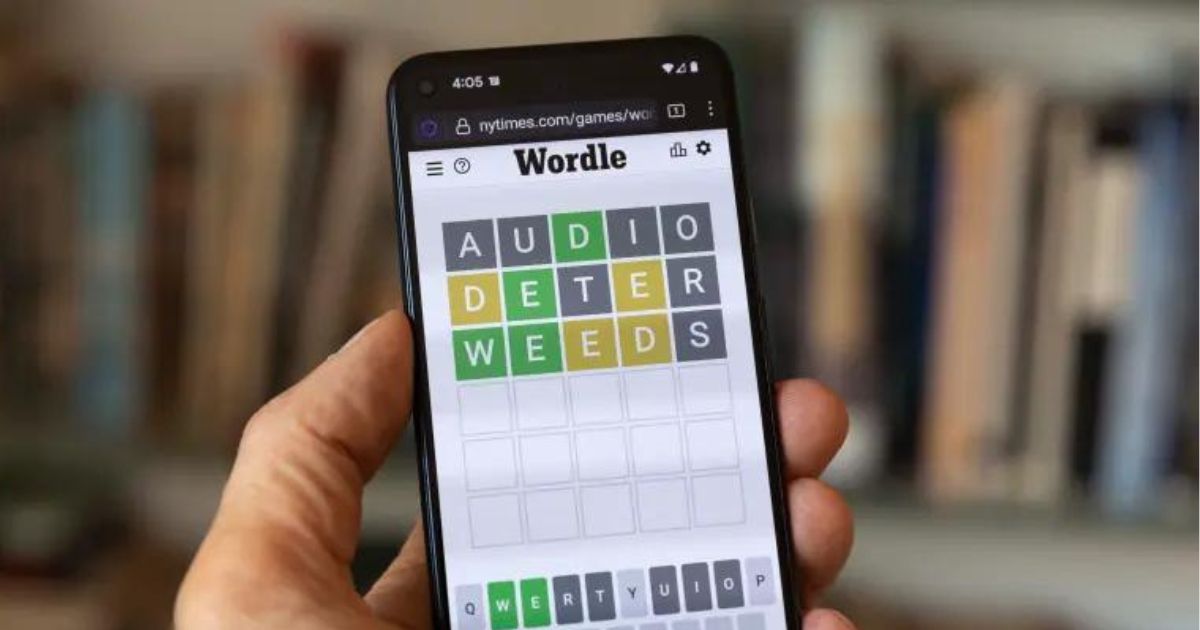



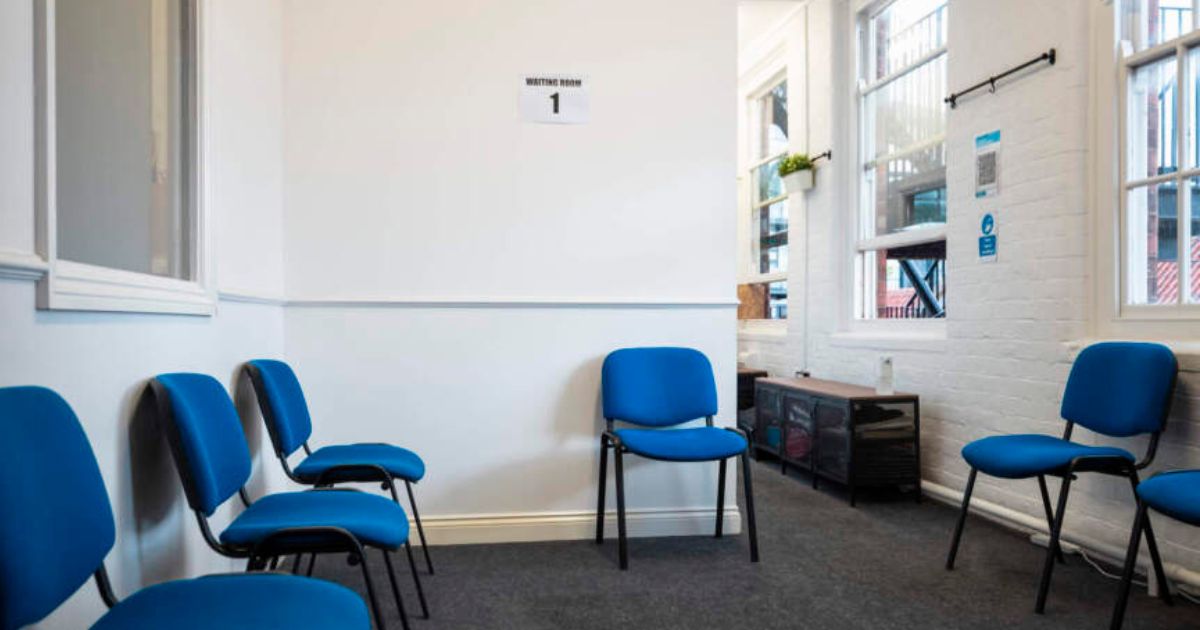


Leave a Reply
You must be logged in to post a comment.